
What is a SERP?
Digital marketers use a lot of acronyms – CRO, SOV, ROAS – the list goes on. One very common term is SERP, but if you aren’t well versed in the vernacular of digital marketing, this term may leave you confused. Learn what SERP stands for and how it relates to digital marketing and advertising.
What Does SERP Stand For?
SERP stands for search engine result page. This simply means the pages of results that appear when you search for any given term on a search engine like Google.
Search Engine Results Pages
SERPs are important because they relate directly to SEO. Search engine optimization works to get website pages ranked on the first SERP for targeted keywords and search queries. If your business, blog, or other website page is ranked on search engine results page 1 for relevant keywords, then it will be easier for customers or website visitors to find your page.
Types of Search Results
Search engine results pages show different types of results. SEO campaigns aim to get your website ranked high on search results organically, but there are also paid search results.
Organic Search Results
Organic search engine results appear based on a variety of factors. Optimizing your website so that it appears in the results for your desired keywords takes time, knowledge, and more. Google ranks SERPs based on over 500 factors, from the keywords on your page, the type of website content, trust factors, and many, many more. That’s why most websites hire an SEO company to handle their SEO campaign so that their website appears in the SERPs.
Below is an example of organic search results – they look just like standard search engine results.
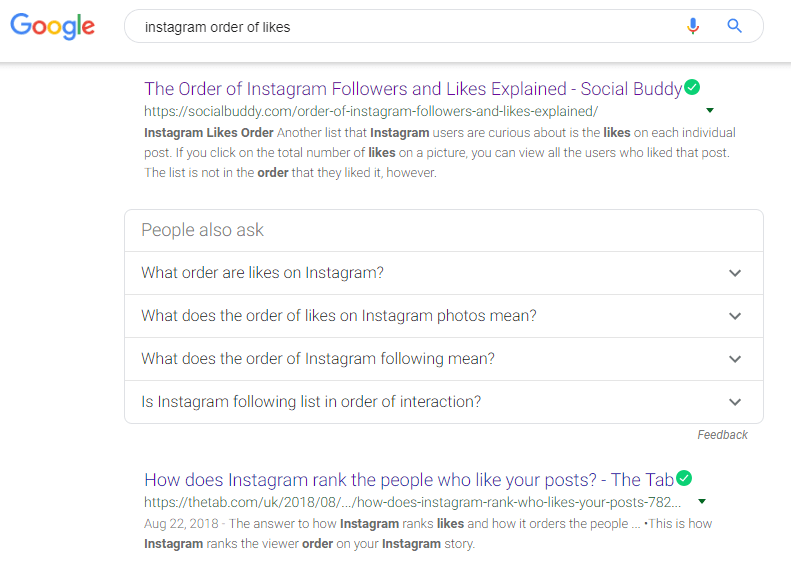
Paid Search Results
Have you ever searched for something and noticed that the first two or three results had an “Ad” bubble next to it? Those results did not earn their spot on the top through great SEO practices – they paid to be there.
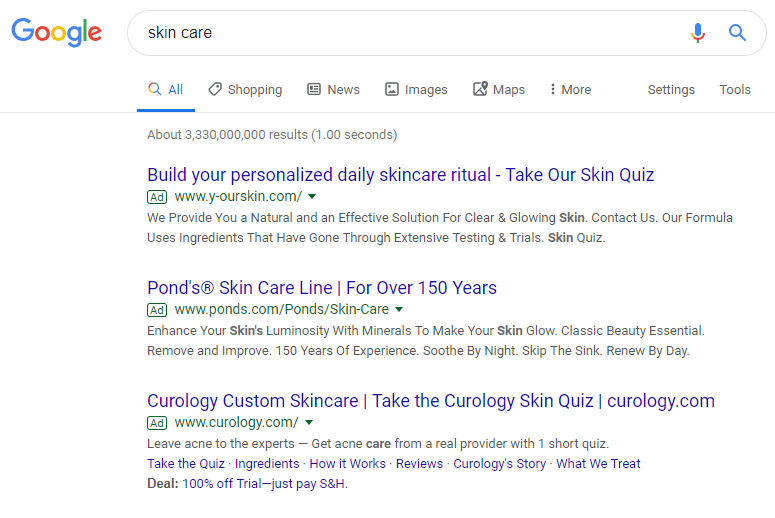
Paid search is a great advertising tool when used correctly. The advertisements at the top of search engine results were placed there by search engines like Google through a PPC campaign. Businesses can create PPC ads, set an advertising budget, and Google will serve the ad on a relevant search. Everytime an ad is clicked, the advertiser pays whatever their set cost per click budget allows.
Paid search can be costly, but with the right targeting and copy it can be an extremely effective marketing campaign.
Other SERP Features
Aside from the distinction between organic and paid search results, there are some other SERP features that you’ll notice when searching. One is a featured snippet – this is the text box that appears above other organic results that gives you a short answer to your search. Featured snippets can drive traffic, so many websites aim to get the snippet for their target keywords or questions.
Image results also appear on SERPs even when you didn’t search for an image. You may also see product links if your search had commercial intent.
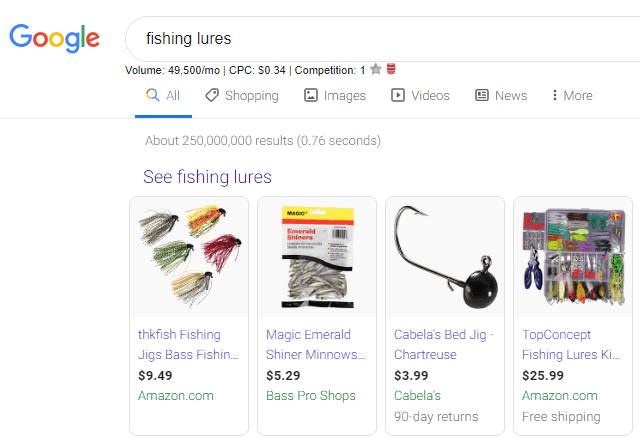
Another SERP feature is called a Knowledge Graph – this can include a variety of panels or boxes that appear to give you information without you having to click on a result. When you search for a famous person, for example, a panel appears on the side of the screen with some basic information.
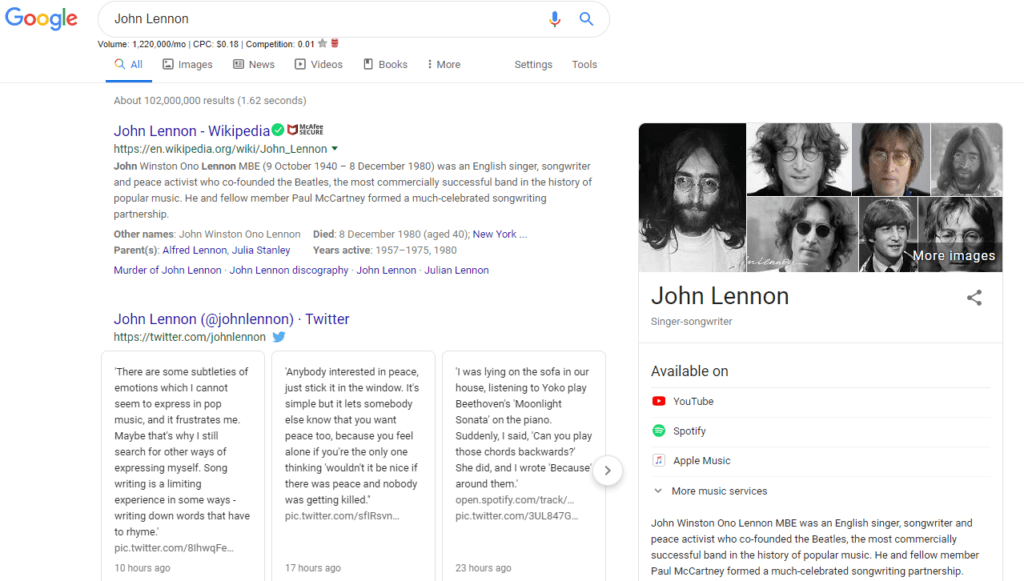
If your search is more location-specific, you may also see a local pack of businesses nearby. Usually 3 or more results appear here along with a map.
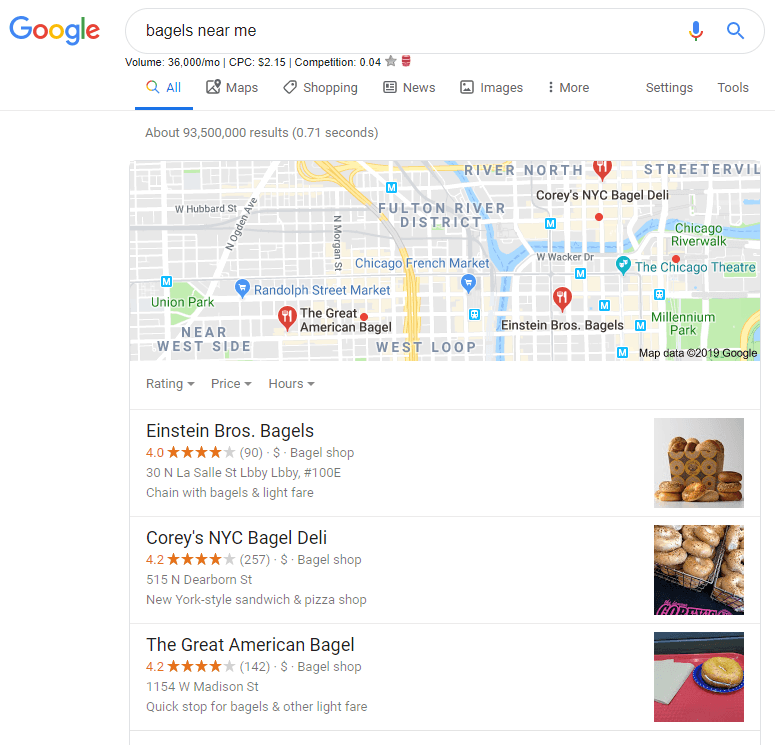
You’ve likely seen all of these SERP features plenty of times before and did not recognize their relevance, but having your website appear in one of these features can be great for business. Being featured in a snippet, image pack, knowledge pack, or local pack can seriously drive traffic and visitors to your site.
How Search Engine Ranking Works
Every search engine results page is unique. Even a minor different in search, like searching for “SEO” as opposed to “SEO company” can show different results. There are also different results based on location, as some search results are recognized as location specific, like “bagels near me” as opposed to “how to make a bagel”.
Other factors like your browsing history or social settings could also affect your specific search results. Two people using the same search engine and searching the exact same term may not get the same results.
How search engines rank the results on their SERPs is complex; that’s why digital marketing companies learn the ins and outs of SEO to help others rank their website for relevant search terms.
Generally speaking, it is the goal of search engines like Google to show their visitors the most accurate, helpful results for their search queries. Google is constantly updating its algorithm to give better results so that searchers find what they were looking for faster. This means that SEO companies must keep up with Google’s changing algorithm to keep websites ranked for their relevant target keywords.
Rank in the Top SERPs
Need more traffic, leads, or conversions on your website? Contact SEO Digital Group today for help ranking at the top of search engine results for your target keywords.



Sorry, the comment form is closed at this time.